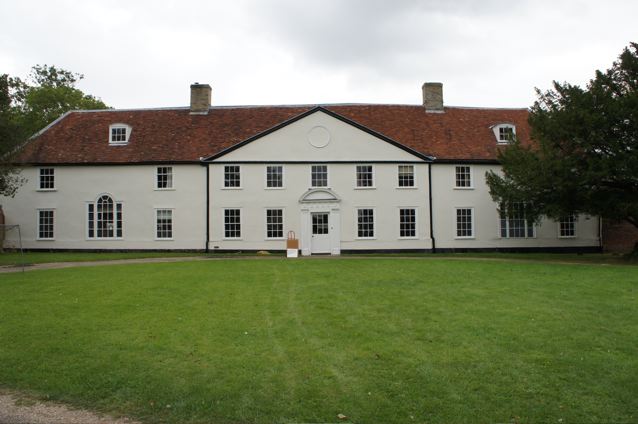|
Wingfield, Suffolk
Wingfield is a village in the English county of Suffolk. It is found east of Diss, signposted off B1118, near Eye. Wingfield Castle, which is now a private house, was for many centuries the home of the Wingfield family and their heirs, the De La Poles, Earls and Dukes of Suffolk. The Wingfields were a very ancient family and Sir John de Wingfield was chief of staff to the Black Prince. Sir John de Wingfield founded the great 14th-century church at Wingfield and his tomb can be found within it. Here visitors can see fine church monuments of Sir John de Wingfield and the De la Pole family. The church contains the effigy of Michael de la Pole Earl of Suffolk, and his wife Katherine. This Earl died of dysentery at the Siege of Harfleur whilst with Henry V on his Agincourt campaign of 1415. The Earl's son, also Michael, who was with his father, succeeded to the title but was killed a few weeks later whilst fighting under the King at the actual battle of Agincourt. The title t ... [...More Info...] [...Related Items...] OR: [Wikipedia] [Google] [Baidu] |
Diss, Norfolk
Diss is a market town and electoral ward in South Norfolk, England, near the boundary with Suffolk, with a population of 7,572 in 2011. Diss railway station is on the Great Eastern Main Line between London and Norwich. It lies in the valley of the River Waveney, round a mere covering and up to deep, although there is another of mud. History The town's name is from ''dic'', an Anglo-Saxon word meaning ditch or embankment. Diss has several historic buildings, including an early 14th-century parish church and an 1850s corn exchange still in use. Under Edward the Confessor, Diss was part of the Hartismere hundred of Suffolk, It was recorded as such in the 1086 Domesday book. It is recorded as being in the king's possession as demesne (direct ownership) of the Crown, there being at that time a church and a glebe of 24 acres (9.7 ha). This was thought to be worth £15 per annum, which had doubled by the time of William the Conqueror to £30, with the benefit of the whole hundred ... [...More Info...] [...Related Items...] OR: [Wikipedia] [Google] [Baidu] |

.jpg)